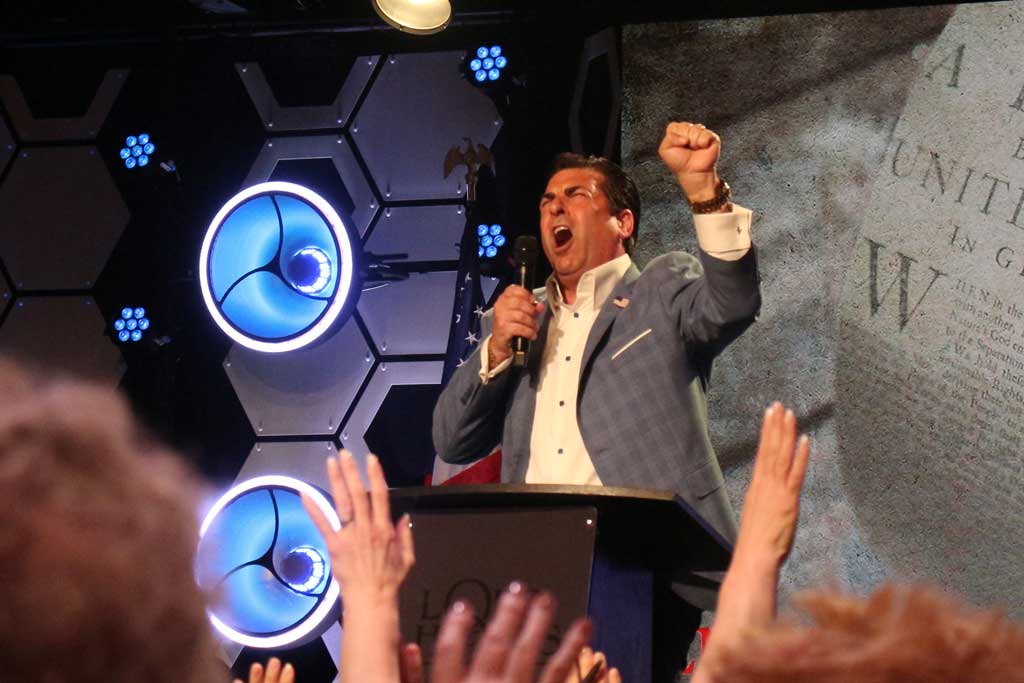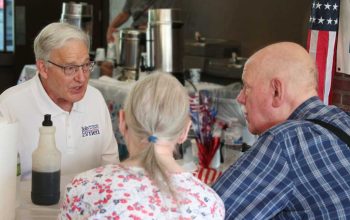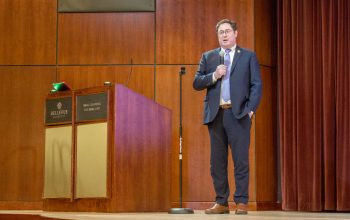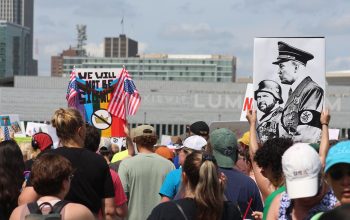There is a new energy stirring in the American church this week—an institution that has become comfortable living behind a wall of separation from the political world.
The mainstream American Christian church often eschews getting involved in anything that looks like a “culture war,” fleeing from taking sides in politics like Joseph from Potiphar’s wife. They pledge to follow the lamb, not the elephant or the donkey.
Rather than paving a “third way” between sides, however, the church has become timid, lukewarm, and passive when it comes to challenging a culture that is increasingly hostile to Christian values. And this desire to withdraw from conflict does not stem from any biblical reason, but from the fear of offending members with deep pockets or drawing the ire of the government, which may revoke the church’s tax-exempt status.
The Turning Point
The fence-sitting American church was put on notice when Charlie Kirk was laid to rest on Sunday. While Kirk was known more as a conservative political influencer than an evangelist, his memorial service at State Farm Stadium resembled an old-time revival.
The tens of thousands who attended, and the millions more who watched online, heard more of the Gospel message from figures like Secretary of State Marco Rubio, Secretary of Defense Pete Hegseth, Vice President JD Vance, and Donald Trump Jr. than from the pulpit of many of their local churches.
In the aftermath of Kirk’s assassination, those who learned of his outspoken Christian faith were led to attend services on Sunday, many for the first time. This phenomenon was dubbed “the Charlie Kirk effect,” and Christian conservatism is now experiencing a resurgence as politics and faith discover newfound energy on the American right.
Lord of Hosts Breaking the Wall
This co-mingling of faith and politics has been building for some time, including here in Omaha—with Charlie Kirk himself having a hand in it. In April 2024, Lord of Hosts, a charismatic-style church in Millard, hosted an event with Kirk. It was not a worship service, but instead a rally calling for Nebraska to switch to a winner-take-all system for allocating its electoral votes.
An overtly political event like this would have crossed many lines for a typical American church, but Lord of Hosts is decidedly not one of these. Pastor Hank Kunneman is an outspoken supporter of President Trump, and he frequently rails against all things “woke” in his Sunday sermons.
But politics doesn’t stay inside the sanctuary—members of Lord of Hosts are engaged in the broader community. Some hold positions in the county GOP, while others have run for local office. Church members lined Dodge Street in 2022 to protest Children’s Hospital for its involvement in “gender-affirming care” for minors. One member even blew a shofar toward sundown during the protest—a traditional Old Testament call for aid in times of battle. Church members volunteered when President Trump held a rally at the Mid-America Center in Council Bluffs. Nebraskans for Founders’ Values, a conservative action group, held a voter engagement seminar earlier this year at Lord of Hosts with state senator Kathleen Kauth and State Board of Education member Lisa Schonhoff.
While Lord of Hosts still places a charismatic-style Gospel message front and center, its open advocacy of Trump and the broader MAGA agenda breaks through the wall of separation between church and state like a wrecking ball. This kind of brazen political engagement has drawn scrutiny from both the online left and local media, which church leadership takes in stride.
A Third Great Awakening?
America has experienced two major “Great Awakenings” in the 18th and early 19th centuries. These were periods of widespread religious revivals and heightened political engagement, with the first paving the way for the American Revolution and the second fueling the abolitionist movement and various social reforms.
As the “Charlie Kirk effect” brings new, politically-engaged guests to churches across the country, these churches will now have to make a choice on how to respond to them. Will they offer a lukewarm gospel of milk for baby Christians, or ignite the political fire of a charismatic congregation like Lord of Hosts, ready to engage the nation in revival?
If America is on the cusp of a third Great Awakening, we may soon see the emergence of churches unafraid to preach scriptural truth, engage the culture, and bring the light of the Gospel out from under the bushel and into society at large—perhaps even into politics.




